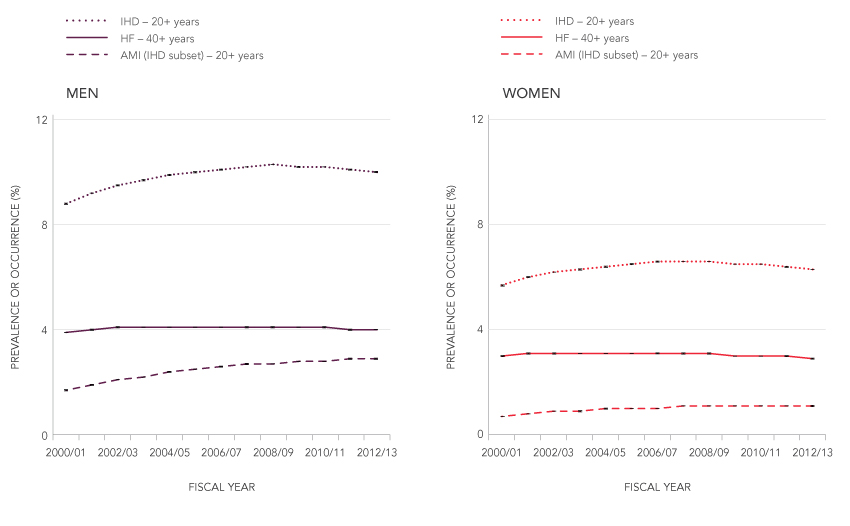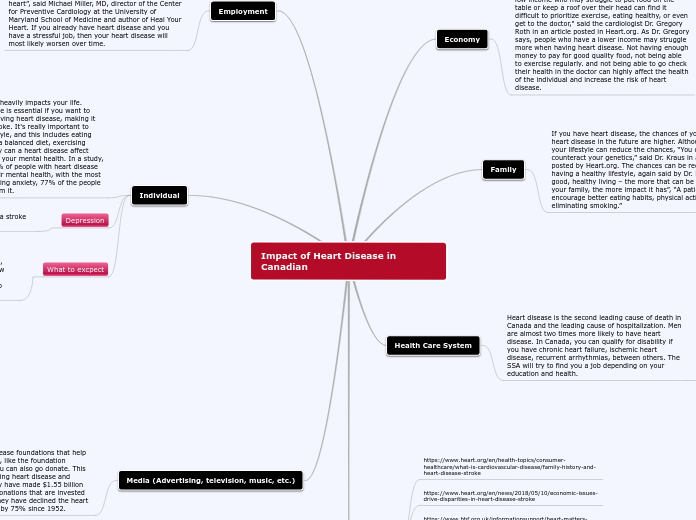Impact of Heart Disease in Canadian
Employment
Having heart disease can also impact your employment and if you already have a job it can affect your job. “Workplace stress is bad for your heart”, said Michael Miller, MD, director of the Center for Preventive Cardiology at the University of Maryland School of Medicine and author of Heal Your Heart. If you already have heart disease and you have a stressful job, then your heart disease will most likely worsen over time.
Economy
"Socioeconomic factors play a role. People with very low income who may struggle to put food on the table or keep a roof over their head can find it difficult to prioritize exercise, eating healthy, or even get to the doctor," said the cardiologist Dr. Gregory Roth in an article posted in Heart.org. As Dr. Gregory says, people who have a lower income may struggle more when having heart disease. Not having enough money to pay for good quality food, not being able to exercise regularly. and not being able to go check their health in the doctor can highly affect the health of the individual and increase the risk of heart disease.
Family
If you have heart disease, the chances of your kids getting heart disease in the future are higher. Although changing your lifestyle can reduce the chances, “You can’t counteract your genetics,” said Dr. Kraus in an article posted by Heart.org. The chances can be reduced by having a healthy lifestyle, again said by Dr. Kraus, “It’s good, healthy living – the more that can be ingrained in your family, the more impact it has”, “A patient should encourage better eating habits, physical activity and eliminating smoking.”

Health Care System
Heart disease is the second leading cause of death in Canada and the leading cause of hospitalization. Men are almost two times more likely to have heart disease. In Canada, you can qualify for disability if you have chronic heart failure, ischemic heart disease, recurrent arrhythmias, between others. The SSA will try to find you a job depending on your education and health.

Sources
Individual
Having heart disease heavily impacts your life. Changing your lifestyle is essential if you want to reduce the risks of having heart disease, making it worse or having a stroke. It's really important to have a healthier lifestyle, and this includes eating healthy food, having a balanced diet, exercising regularly. But not only can a heart disease affect your lifestyle but also your mental health. In a study, they showed that 68% of people with heart disease had an impact on their mental health, with the most common symptom being anxiety, 77% of the people said they suffered from it.

Depression
Despression is very commom after having a stroke or other heart disease related event
What to excpect
People don't know what to expect after having a stroke or heart disease. They're more tired, frustrated, overwhelmed, they have to work less, their life completely changes and they don't know what to do, how to handle it, how to adapt. The transition they make from the hospital to back to their home can be difficult.
Media (Advertising, television, music, etc.)
There are many heart disease foundations that help people with heart disease, like the foundation HeartStroke.ca, where you can also go donate. This foundation has been fighting heart disease and strokes for 60 years. They have made $1.55 billion dollars since 1952 from donations that are invested in life-saving research. They have declined the heart disease dnd stroke death by 75% since 1952.

